- Home
- Rosamunde Pilcher
The Empty House Page 2
The Empty House Read online
Page 2
And “we are managing beautifully.” The statement seemed to Virginia completely ambiguous. Who was “we”? Nanny and the grandmother? Or did it include the children, Virginia’s children? Did they let Cara sleep with the old Teddy that Nanny swore was unhygienic? Did they remember always to leave the light on so that Nicholas could get himself to the bathroom in the middle of the night? And were they ever left alone, disorganized, dirty, untidy, to play secret, pointless games in small corners of the garden, with perhaps a nut or a leaf, and all the imaginings that were contained within their small, clever, bewildering brains?
She found that her hands were shaking. She was a fool to get into this state. Nanny had looked after the children since they were born, she knew all their idiosyncrasies and nobody could cope with Nicholas’s sudden rages better than she.
(But should he have such rages? At six, shouldn’t he have grown out of them? What frustration sparks them off?)
And Nanny was gentle with Cara. She made dolls’ clothes and knitted scarves and sweaters for the teddies out of left-over bits of wool. And she let Cara wheel her doll’s perambulator into the park; over the crossing by the Albert Memorial, they went. (But did she read to Cara, the books that Cara loved? The Borrowers and The Railway Children and every word of The Secret Garden.) Did she love the children, or simply possess them?
These were all familiar questions which, lately, had been raising themselves with ever-increasing frequency within the confines of Virginia’s own head. But never answered. Knowing that she was evading a vital issue, she would shelve her own anxiety, always with some excuse to herself. I can’t think about it now, I’m too tired. Perhaps in a couple of years when Nicholas goes away to Prep. school, perhaps then I’ll tell my mother-in-law that I don’t need Nanny any longer; I’ll say to Nanny it’s time to go, to find another new baby to look after. And perhaps just now I’m too emotional, I wouldn’t be good for the children; they’re better with Nanny: after all, she’s been looking after children for forty years.
Like a familiar sedative the well-worn excuses came pat, blunting Virginia’s uneasy conscience. She put the blue letter back into its expensive envelope and turned, in relief, to the second one. But the relief was short-lived. Cara had borrowed her grandmother’s writing-paper, but the sentences this time were neither meticulously penned nor well-turned. The ink was blotched and the lines ran down the side of the paper as though the words were tumbling hopelessly downhill.
Darling Mother,
I hope you are having a good time. I hope it is nise wether. It is hot in London. I have to go and have tea with Susan Maning Preston. I dont no what we will play. Last night Nicholas screemed and Granny had to give him a pil. He went all red. One of my dolls eyes has come out and I cant find it. Please will you rite to me soon and tell me when we are going back to Kirkton.
With love from Cara.
P.S. Dont forget to rite.
She folded the letter and put it away. Across the garden, across the lawns, the blue of Alice’s swimming-pool glimmered like a jewel. The cooling air was filled with bird-song and the scent of flowers. From inside the house she could hear Alice’s voice talking to Mrs. Jilkes, the cook, doubtless about the lobster which they were going to eat for dinner.
She felt helpless, totally inadequate. She thought of asking Alice to have the children here, and in the next instant knew that it was impossible. Alice’s house was not designed for children, her life did not cater for their inclusion. She would be irritated beyond words by Cara forgetting to change her gum-boots, or by Nicholas kicking his football into the treasured flower-borders, or drawing “pictures” on the wallpaper. For without Nanny, he would doubtless be impossible because he was always twice as naughty without her to keep an eye on him.
Without Nanny. Those were the operative words. On her own. She had to have them on her own.
And yet the very thought filled her with dread. What would she do with them? Where would they go? Like feelers her thoughts probed around, searching for ideas. A hotel? But hotels here would be filled to the brim with summer visitors and terribly expensive. Besides, Nicholas in a hotel would be as nerve-racking as Nicholas at Wheal House. She thought of hiring a caravan, or camping with them on the beach, like the summer migration of hippies, who lit fires of driftwood and slept curled up on the chilly sand.
Of course, there was always Kirkton. Some time, she would have to go back. But all her instincts shied away from the thought of returning to Scotland, to the house where she had lived with Anthony, the place where her children had been born, the only place they thought of as home. Thinking of Kirkton, she saw tree shadows flickering on pale walls, the cold northern light reflected on the white ceilings, the sound of her own feet going up the uncarpeted, polished stairway. She thought of clear autumn evenings when the first skeins of geese flew over, and the park, in front of the house, sweeping down to the banks of the deep, swift-flowing river …
No. Not yet. Cara would have to wait. Later, perhaps, they would go back to Kirkton. Not yet. Behind her a door slammed, and she was jerked back to reality by the arrival of Tom Lingard, back from work. She heard him call Alice, then drop his brief-case on the hall-table, and come out to the patio in search of his wife.
“Hallo, Virginia.” He bent and dropped a kiss on the top of her head. “All alone? Where’s Alice?”
“Interviewing a lobster in the kitchen.”
“Letters from the children? All well? Well done, that’s great…” One of Tom’s idiosyncrasies was that he never bothered to wait for an answer to any of his questions. Virginia sometimes wondered if this was the secret of his outstanding success. “What have you been doing all day? Lying in the sun? That’s the job. How about coming and having a swim with me now? The exercise’ll do you good after all this lazing about. We’ll get Alice to come too…” He went, spring-footed and bursting with energy, back into the house and down the passage towards the kitchen, bellowing for his wife. And Virginia, grateful for directions, stood up and collected her mail and went indoors, obediently, and upstairs to her bedroom to change into a bikini.
2
The solicitors were called Smart, Chirgwin and Williams. At least, those were the names on the brass plate by the door, a plate which had been polished so long and so hard that the letters had lost their sharpness and were quite difficult to read. There was a brass knocker on the door, too, and a brass door knob, as smooth and shining as the plate, and when Virginia turned the knob and opened the door, she stepped into a narrow hall of polished brown linoleum and shining cream paint and it occurred to her that some hard-working woman was using up an awful lot of elbow grease.
There was a glass window, like an old-fashioned ticket-office with INQUIRIES written over it, and a bell to press. Virginia pressed the bell and the window flew up.
“Yes?”
Startled, Virginia told the face behind the window that she wanted to see Mr. Williams.
“Have you got an appointment?”
“Yes. It’s Mrs. Keile.”
“Just a moment, please.”
The window slammed down and the face withdrew. Presently a door opened and the face reappeared, along with a well-upholstered body and a pair of legs that went straight down into sturdy lace-up shoes.
“If you’d like to come this way, Mrs. Keile.”
The building which housed the solicitors’ office stood at the top of the hill which led out of Porthkerris, but even so Virginia was taken unawares by the marvellous view which leapt at her as soon as she walked into the room. Mr. Williams’s desk stood in the middle of the carpet and Mr. Williams was, even now, getting to his feet behind it. But, beyond Mr. Williams, a great picture-window framed, like some lovely painting, the whole jumbled, charming panorama of the old part of the town. Roofs of houses, faded slate and whitewashed chimneys, tumbled without pattern or order down the hill. Here a blue door, there a yellow window; here a window-sill bright with geraniums, a line of washing gay as flags, or the le
aves of some unsuspected and normally unseen tree. Beyond the roofs and far below them was the harbour, at full tide and sparkling with sunshine. Boats rocked at anchor and a white sail sped out beyond the shelter of the harbour wall, heading for the ruler line of the horizon where the two blues met. The air was clamorous with the sound of gulls, the sky patterned with their great gliding wings and as Virginia stood there, the church bells from the Norman tower struck up a simple carillon and clock chimes rang out eleven o’clock.
“Good morning,” said Mr. Williams, and Virginia realized that he had already said this twice. She tore her attention from the view and tried to focus it on him.
“Oh, good morning. I’m Mrs. Keile, I…” But it was impossible. “How can you work in a room with a view like that?”
“That’s why I sit with my back to it…”
“It’s breathtaking.”
“Yes, and quite unique. We’re often asked by artists if they can paint the harbour from this window. You can see the whole structure of the town, and the colours are always different, always beautiful. Except, of course, on a rainy day. Now—” his manner changed abruptly as though anxious to get down to work and to waste no more time—“what can I do for you?” He drew a chair forward for her.
Trying to stop looking out of the window and to concentrate on the matter in hand, Virginia sat down. “Well I’ve maybe come to quite the wrong person, but you see I can’t find an estate agent anywhere in the town. And I looked in the local paper for a house to rent, but there didn’t seem to be one. And then I saw your name in the telephone book, and I thought perhaps you might be able to help me.”
“Help you find a house?” Mr. Williams was young, very dark, his eyes frankly interested in the attractive woman who faced him across his desk.
“Just to rent…”
“For how long?”
“A month … my children go back to school the first week in September.”
“I see. Well, we don’t actually deal in this sort of thing, but I could ask Miss Leddra if there’s anything that she could suggest. But of course this is the high season, and the town is already packed to the gunwales with visitors. Even if you do find something, I’m afraid you’ll have to pay a fairly steep rent.”
“I don’t mind.”
“Well, just a moment…”
He left her and went out, and Virginia heard him speaking to the woman who had let her in. She got up and went back to the window, and opened it wide and laughed as a furious gull flew crossly off the sill where he had been perching. The wind off the sea was cool and fresh. A pleasure boat packed with passengers started off across the harbour and suddenly Virginia longed to be on board, irresponsible, sunburned, wearing a hat with KISS ME written on it and screaming with laughter as the first waves sent the boat rocking.
Mr. Williams came back. “Can you wait a moment? Miss Leddra’s making a few inquiries…”
“Yes, of course.” She returned to her chair.
“Are you staying in Porthkerris?” Mr. Williams asked conversationally.
“Yes. I’m staying with friends. The Lingards up at Wheal House.”
His previous manner had been neither offhand nor familiar, but all at once he was almost deferential.
“Oh yes, of course. What a charming place that is.”
“Yes. Alice has made it lovely.”
“Have you been there before?”
“Yes. Ten years ago. But I haven’t been since.”
“Are your children with you?”
“No. They’re in London, with their grandmother. But I want to get them down here with me, if I can.”
“Is London your home?”
“No. It’s just that my mother-in-law lives in London.” Mr. Williams waited. “My home … that is, we live in Scotland.”
He looked delighted … Virginia could not think why it should delight him that she lived in Scotland. “But how splendid! What part?”
“In Perthshire.”
“The most beautiful. My wife and I spent a holiday there last summer. The peace of it all, and the empty roads and the quiet. How could you bear to come away?”
Virginia had opened her mouth to tell him when the discussion was mercifully interrupted by the arrival of Miss Leddra, bearing a sheaf of papers.
“Here it is, Mr. Williams. Bosithick. And the letter from Mr. Kernow saying that if we could find a tenant for August he’d be willing to rent. But only to a suitable tenant, Mr. Williams. He’s very firm about that point.”
Mr. Williams took the papers and smiled at Virginia over the top of them.
“Are you a suitable tenant, Mrs. Keile?”
“It depends. On what you’re offering me, doesn’t it?”
“Well, it’s not actually in Porthkerris … thank you, Miss Leddra … but not too far away … out at Lanyon actually…”
“Lanyon!”
She must have sounded appalled, for Mr. Williams sprang at once to Lanyon’s defence. “But it’s a most charming spot, quite the most beautiful bit of coastline left anywhere.”
“I didn’t mean that I didn’t like it. I was just surprised.”
“Were you? Why?”
He was too sharp, like a beady-eyed bird. “No reason, really. Tell me about the house.”
He told her. It was an old cottage, neither distinguished nor beautiful, but with a small claim to fame in that a famous writer had once lived and worked there during the nineteen-twenties.
Virginia said, “Which?”
“I beg your pardon?”
“Which famous writer?”
“Oh, I’m sorry. Aubrey Crane. Didn’t you know that he spent some years in this part of the world?”
Virginia did not. But Aubrey Crane had been one of the many authors of whom Virginia’s mother did not approve. She remembered her mother’s chill expression, lips pursed, whenever his books were mentioned; remembered them being returned swiftly to the library before the young Virginia could get her eyes on them. For some reason this seemed to make the cottage called Bosithick even more desirable. “Go on,” said Virginia.
Mr. Williams went on. Despite its age Bosithick had been modernized to a certain degree—there was now a bathroom and a lavatory and an electric cooker.
“Who does it belong to?” Virginia asked.
“Mr. Kernow is the nephew of the old lady who used to own the house. She left it to him, but he lives in Plymouth so he uses it just for holidays. He and his family intended coming down for the summer, but his wife fell ill and can’t make the trip. As we are Mr. Kernow’s solicitors, he put the matter in our hands, with the instructions that, if we did let the house, it must be to a tenant who can be trusted to take care of it.”
“How big is it?”
Mr. Williams perused his papers. “Let’s see, a kitchen, a sitting-room, a downstairs bathroom, and a hall, and three rooms upstairs.”
“Is there a garden?”
“Not really.”
“How far is it from the road?”
“About a hundred yards down a farm lane as far as I can remember.”
“And could I have it right away?”
“I can see no objection. But you must see it first.”
“Yes, of course … when can I see it?”
“Today? Tomorrow?”
“Tomorrow morning.”
“I’ll take you out myself.”
“Thank you, Mr. Williams.” Virginia stood up and made for the door, and he had to make a little rush to get there and open it before she did.
“There’s just one thing, Mrs. Keile.”
“What’s that?”
“You haven’t asked what the rent is.”
She smiled. “No I haven’t, have I? Goodbye, Mr. Williams.”
Virginia said nothing to Alice and Tom. She did not want to have to put into words what was, at best, only a vague idea. She did not want to be drawn into an argument, to be persuaded either that the children were best left in London with their grandmother o
r that Alice could disregard the possible destruction that they might perpetrate at Wheal House and would insist on having them there. When Virginia had found somewhere for them all to live, she would present Alice with what she had done as a fait accompli. And then Alice would maybe help her take the biggest hurdle of all, which was to persuade the grandmother to let the children come to Cornwall without Nanny. At the very prospect of this ordeal, Virginia’s imagination turned and ran, but there were other and smaller obstacles to be overcome first, and these she was determined to do by herself.
Alice was a perfect hostess. When Virginia told her that she would be out for the morning it never occurred to Alice to quiz her as to what she intended doing. She only said, “Will you be in for lunch?”
“I don’t think so … Better say not…”
“I’ll see you at tea time, then. We’ll have a swim together afterwards.”
“Heaven,” said Virginia. She kissed Alice and went out, got into her car and drove down the hill into Porthkerris. She parked the car near the station and walked to the solicitors’ office to pick up Mr. Williams.
“Mrs. Keile, I couldn’t be more sorry, but I’m not going to be able to come out with you this morning to Bosithick. An old client is coming down from Truro and I must be here to see her; I do hope you understand! But here are the keys of the house, and I’ve drawn a fairly detailed map of how to find it … I don’t think you could go wrong. Do you mind going on your own, or would you like to take Miss Leddra with you?”
Virginia imagined the daunting presence of the formidable Miss Leddra and assured Mr. Williams that she’d manage perfectly on her own. She was given a ring of large keys, each with a wooden label. Front Door, Coal Shed, Tower Room. “You’ll need to watch out for the lane,” Mr. Williams told her, as they went together towards the door. “It’s fairly bumpy and although there’s no room to turn by the gate of Bosithick itself, you can manage easily if you carry on down the lane; you’ll come to an old farmyard and you can turn the car there. Now, you’re sure you’ll be all right … I couldn’t be more sorry about this, but I’ll be here, of course, waiting to hear what you think of the place. Oh, and Mrs. Keile … it’s been empty for some months. Try not to be influenced if it feels a little dingy. Just throw open a few windows and imagine it with a nice cheerful fire.”

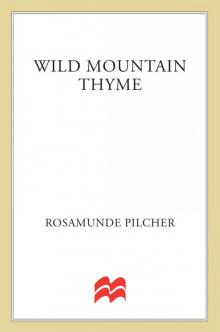 Wild Mountain Thyme
Wild Mountain Thyme Sleeping Tiger
Sleeping Tiger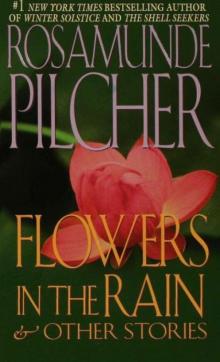 Flowers in the Rain & Other Stories
Flowers in the Rain & Other Stories September
September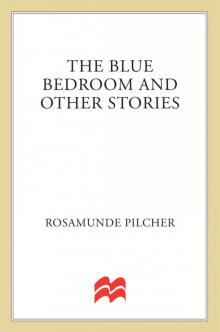 The Blue Bedroom: & Other Stories
The Blue Bedroom: & Other Stories The Carousel
The Carousel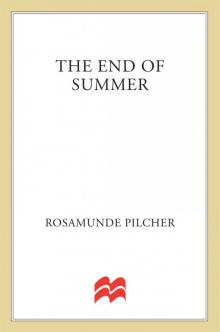 The End of Summer
The End of Summer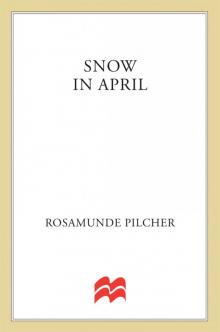 Snow in April
Snow in April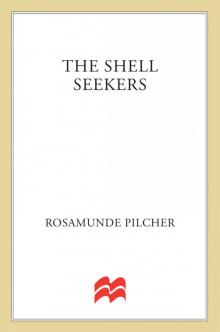 The Shell Seekers
The Shell Seekers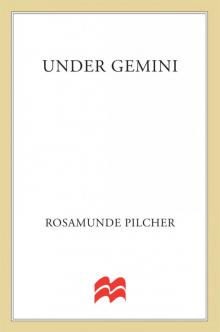 Under Gemini
Under Gemini The Empty House
The Empty House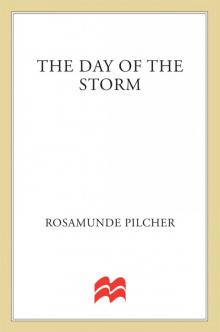 The Day of the Storm
The Day of the Storm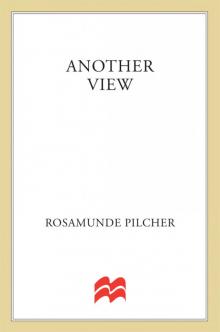 Another View
Another View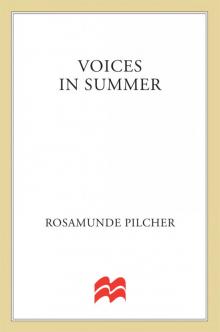 Voices in the Summer
Voices in the Summer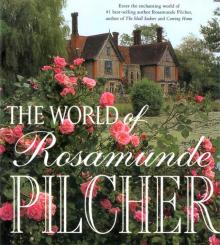 The World of Rosamunde Pilcher
The World of Rosamunde Pilcher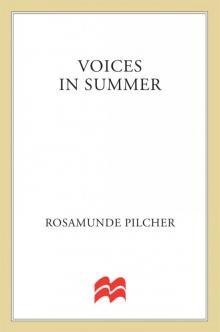 Voices In Summer
Voices In Summer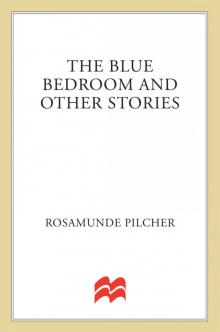 Blue Bedroom and Other Stories
Blue Bedroom and Other Stories